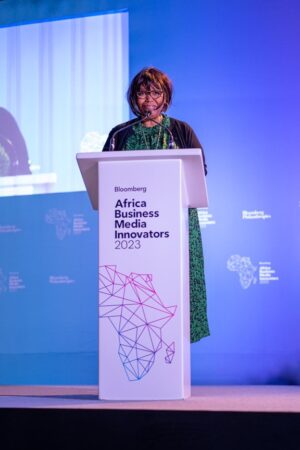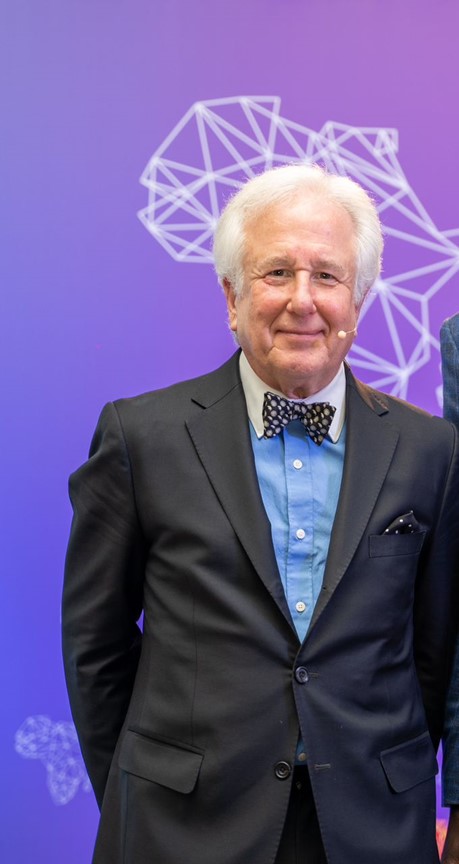The Editor-in-Chief Emeritus of Bloomberg News, Matthew Winkler, has stressed the importance of journalists adopting artificial intelligence (AI) to enhance efficiency.
According to him, Bloomberg has over the years harnessed various aspects of the technology to deliver content “faster and better”.
“The beauty of AI, in a nutshell, is its ability to provide highly informative content much faster and more efficiently than [traditional methods]. We are just at the beginning, but Bloomberg, for example, is already effectively utilizing it,” Winkler told the B&FT.
“This is not a 2023 phenomenon; it’s a development that has been evolving over decades,” he added.
Winkler founded Bloomberg News with Michael Bloomberg in 1990, becoming its first employee and leader for 25 years. He also created the Bloomberg Journalism Diversity Programme in 2015, an international partnership with universities conceived to inspire careers in all aspects of economic reporting among students of colour.

Joining the discussion, Erana Stennett, Corporate Philanthropy, Middle East and Africa at Bloomberg, emphasised the necessity of training and retraining for media houses and newsroom staff to seamlessly incorporate this innovative tool into their operations.
And for this to be accomplished, local universities must actively engage in training and upscaling by introducing AI courses in their curricula, she said.
“Similar to the work that Bloomberg is doing through our financial journalism training programme in partnership with journalists and business schools, I believe there will be a need for executive education in rudimentary artificial intelligence. This would provide journalists with fundamental knowledge and access to some of the tools that media houses can utilize,” she stated during the post-Bloomberg Africa Business Media Innovators” Forum 2023.
ABMI convened leaders from across Africa and beyond
Media, business, government, technology, and community leaders from across Africa, the USA and beyond participated in the annual Africa Business Media Innovators (ABMI) forum.
The forum was co-hosted by M. Scott Havens, CEO, Bloomberg Media and Winkler, and Stennett. This year’s convening returned to South Africa, which was the inaugural host of ABMI in 2015, resuming in person for the first time since 2019. This sixth edition of the forum follows successful gatherings in Senegal (2019), Zambia (2018), Ghana (2017), Kenya (2016), South Africa (2015) and the virtual ‘ABMI Chats’ series in 2020 and 2021.
Leaders at this year’s convening examined innovative business solutions re-shaping and contributing to the future of media and journalism both in Africa and globally. The gathering provided a unique, forward-looking platform for actionable dialogue and peer-learning as media leaders in Africa prepare for journalism in the digital age.
The convening focused on the opportunities and challenges shaping the future of media in Africa. Key themes that were explored include the impact of new technologies, AI, and the future shape of work in newsrooms, along with a focus on the sustainability of legacy media across the continent against the backdrop of increased global competition. There was also analysis of the current state of the media landscape in Africa and globally.
About ABMI
The annual event is a component of the Bloomberg Media Initiative Africa (BMIA), a pan-African program launched by Michael R. Bloomberg in 2014. The initiative is designed to advance business journalism in Africa and accelerate development of a globally competitive media and financial reporting industry. The program delivers cross-disciplinary educational programs and mid-career fellowships to increase the number of highly trained business and financial journalists, as well as supports research to stimulate new media innovations. It is also designed to convene leaders to promote interactive dialogue and build strong relationships to enhance the quality of financial coverage and the availability of reliable and timely data on the continent.










